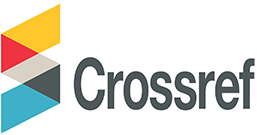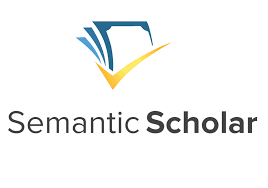The Impact of Integrating Rhyming Poetry into Vocabulary Instruction Among Primary School Pupils in Ido Local Government, Nigeria.
DOI:
https://doi.org/10.69760/aghel.025002120Keywords:
Rhyming poetry, vocabulary development, primary education, phonological awareness, language instructionAbstract
This study investigates the impact of integrating rhyming poetry into vocabulary instruction among primary school pupils in Ido Local Government, Nigeria. Employing a quasi-experimental design, the research involved an experimental group receiving poetry-based instruction and a control group following traditional teaching methods. Quantitative data were collected through standardized pre-tests and post-tests measuring vocabulary acquisition, retention, and reading comprehension. Qualitative insights were gathered via classroom observations, structured interviews, and focus group discussions to assess pupil engagement and perceptions of the poetry-based approach. Findings revealed that the experimental group exhibited significant improvements in vocabulary development, phonological awareness, and reading comprehension compared to the control group. Additionally, pupils reported increased motivation and enjoyment during poetry sessions. However, challenges such as selecting culturally appropriate poems and time constraints within the curriculum were identified. It was recommended among others that educational authorities should incorporate rhyming poetry into the language curriculum to enhance vocabulary development and phonological awareness. Teachers should receive training on effective methods for selecting and utilizing poetry in the classroom to maximize its benefits for vocabulary instruction. The study concludes that incorporating rhyming poetry into language instruction can effectively enhance vocabulary development and overall language proficiency among primary school pupils.
References
Al-Jarf, R. (2015). The Effectiveness of Teaching English Poetry on EFL Students' Vocabulary Development. International Journal of English Language Teaching, 3(1), 1-14.
Arslan, K. (2024). Teaching English Vocabulary: Innovative Methods. https://doi.org/10.62601/crll.v2i1.26
Atay, Ö. (2007). Poetry in primary school EFL classroom: A language based approach. Unpublished MA Thesis, Çukurova Üniversitesi, Sosyal Bilimler Üniversitesi,
Bush, A (2020). How Poetry can help kids develop reading skills. https://readingpartners.org/blog/poetry-can-help-kids-develop-reading-skills/?
Collins, K. (2020). Importance of Poetry, Rhyming, and Music When Learning to Read. https://journal.imse.com/importance-of-poetry-rhyming-and-music/?utm_source=chatgpt.com
Dixit, D (2024). Building Literacy Skills through Poetry: A Comprehensive Guide. https://brightchamps.com/blog/poem-for-kids/?
Elleman, A. M., Lindo, E. J., Morphy, P., & Compton, D. L. (2009). The Impact of Vocabulary Instruction on Passage-Level Comprehension of School-Age Children: A Meta-Analysis. Journal of Research on Educational Effectiveness, 2(1), 1–44. https://doi.org/10.1080/19345740802539200
Friday, M.J (2024). Teaching Kindergartners to Write Poetic Sentences. https://www.edutopia.org/article/poetic-writing-kindergarten/?
Goepel, J. (2024). What Is a Poem? Poetry Definition, Elements, & Examples. https://www.papertrue.com/blog/what-is-a-poem/
Gönen,SIK (.2018). Implementing Poetry in the Language Class: A Poetry-Teaching Framework for Prospective English Language Teachers, Advances in Language and Literary Studies, v9 n5 p28-42
Hanauer, DI (2012). Meaningful literacy: Writing poetry in the language classroom, Language Teaching 45(01):105 – 115
Handig, J. E. R., Gabriel, A. H., García, R., & Domingo, M. S. (2023). Enhancing vocabulary learning in elementary language education: exploring effective strategies and interactive approaches. EPRA International Journal of Multidisciplinary Research, 392–397. https://doi.org/10.36713/epra14166
https://vocabularyluau.com/using-cinquain-poems-to-teach-vocabulary/?
KRISHNASAMY, K & ABDUL AZIZ, A.(2024) Effectiveness of Using Fun Minds Flash in Improving Vocabulary Retention Among Year 5 Remedial Pupils. International Journal of Advanced Research in Education and Society, [S.l.], v. 6, n. 3, p. 40-54, ISSN 2682-8138.
Matthew J.F (2024). Using Rhyming to Promote Phonemic Awareness in Elementary School. https://www.edutopia.org/article/rhyming-supports-phonemic-awareness
Nordin, N., Kamaludin, P. N. H., Md Sharif, N. F., Chumari, M. Z., & Zabidin, N. (2024). The effectiveness of vocabulary games on vocabulary acquisition: a literature review. INTERNATIONAL JOURNAL OF MODERN EDUCATION (IJMOE), 6(21), 540–547. https://doi.org/10.35631/ijmoe.621039
Ozen, B & Mohammadzadeh, B (2012). TEACHING VOCABULARY THROUGH POETRY IN AN EFL CLASSROOM. International Online Journal of Primary Education, 1(1), 58-72
Palmer, R. (2023). Poetry Definition, Types & Examples. https://study.com/academy/lesson/poetry-definition-types-examples.html
Rajan, S.K & Saadat, U. (2024) An Experimental Study on Using Rhymes to Build English Vocabulary Among Kindergarten Pupils in Bousher, Oman. International Journal of Emerging Issues in Social Science, Arts, and Humanities, 2(2), 91-104
Reilly, N. (2012). What is the Role of Poetry in Second Language Learning and Teaching?The Role of Poetry in Teaching Second Language. (slideshare.net)
Ruba Jamal "Mohammed Hilmi" AL-Bakri (2019). The Effectiveness of Using Poetry in Developing English Vocabulary, Language Proficiency and Motivation of EFL Palestinian Students A thesis is submitted in partial fulfillment of the requirements for the Degree of Master of Applied Linguistics and the Teaching of English Language, Faculty of Graduate Studies & Academic Research, Hebron University, Palestine.
Van Gemert, L. (2024). Using Cinquain Poems to Teach Vocabulary
Downloads
Published
Issue
Section
License
Copyright (c) 2025 Acta Globalis Humanitatis et Linguarum

This work is licensed under a Creative Commons Attribution-NonCommercial 4.0 International License.







